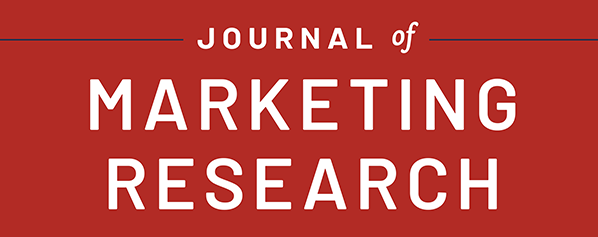If you are a prospective student interested in our MSc Strategic Retailing – join us for an online taster lecture with prof Jens Nordfält with the title “Shopper psychology in a digital world”! Tune into prof Nordfält’s lecture is on 10 March, 9:00am to 10:30am GMT.
Dr Carl-Philip Ahlbom

This research investigates how shopping on a weekday or a weekend moderates the impact of music on supermarket sales. Contrary to the intuitive beliefs of interviewed store managers, a meta-analysis, two field studies, and a controlled experimental study indicate that playing pleasant music (vs. no music) in supermarkets on weekdays enhances sales, an effect not found on weekends. Theorizing and interviews with shoppers suggest a potential reason for this weekpart difference: Shoppers are more mentally depleted on weekdays (vs. weekends). A final study demonstrates and tests mental depletion as the driving factor for how shoppers are affected by music during different weekparts. When consumers are depleted (e.g., on weekdays) music increases affect, which mediates the impact of music on sales. The results of the studies further indicate that weekpart plays a significant role in determining the impact of in-store music on sales. This article concludes with a discussion of the substantive and theoretical importance of incorporating the impact of weekparts to predict in-store marketing effectiveness.

In-store communication delivered through technology formats (e.g., kiosk, digital display) as well as non-technology formats (e.g., magazine cover, flyer) can help retailers enhance sales by delivering relevant content to consumers. Although prior research has primarily examined the effects of deal-oriented content that primarily offers promotions for a single product on shopper spending, the effects of inspirational content that sparks ideas (e.g., novel ways to use products) on spending are unclear. Inspirational content can affect spending differently from deal-oriented content as it activates stronger motivation for consumption goal-completion. Guided by motivation for goal-completion, this article proposes that inspirational content increases spending more than deal-oriented content does. The authors propose and empirically test the hypotheses using data from a set of experimental studies, a field experiment, and an eye-tracking study. The results show that inspirational content increases spending more than deal-oriented content or no content. This effect is mediated by consumption goal-completion, such that it is attenuated when consumers already have consumption goals or when the content detracts from inspiration-induced goals. These results suggest that retailers can increase sales by using clear, inspirational content in their communications.
New MSc in Strategic Retailing!
The University of Bath School of Management is launching a brand new MSc course in Strategic Retailing (first intake 2023/24)! We’ve partnered with experts to help prepare students for a career in the retailing industry.
We’ve combined our leading research with our industry partners’ experience to design content relevant to contemporary retailing. You’ll develop the knowledge and practical skills leaders need for a successful career in the headquarters, stores and supply chains of the retail industry.
Applications are now open!
Holograms and video projections boost grocery store sales but the simpler, the better – new research from the Bath Retail Lab shows. The research findings were recently featured in The Grocer.
On Wednesday 27th April we had the great pleasure of hosting Professor Martin Charter from the University for the Creative Arts for the Bath Retail Seminar Series. Professor Charter is Director for The Centre for Sustainable Design at UCA, and presented his work on “Designing for the Circular Economy” (See also Prof Charter’s book with the same title here). Discussant for this seminar was Professor Pierre McDonagh, University of Bath, who led the interesting discussion.
Welcome to a new seminar in the Bath Retail Lab Seminar Series on Wednesday 17th March at 10:00-11:30 on Zoom.
In March, we have Bernardo Figueredo from RMIT joining us to talk through his and his co-authors recently published research on the ‘Cosmopolitan Servicescape’. We hope you’re able to make it as Bernardo will be explaining how servicescapes champion a cosmopolitan ideology.
If you would be interested in attending this seminar, please contact Tim Hill (trh37@bath.ac.uk)
| Please join us for the RCC Lab’s third research seminar on Thursday, 28 October at 14:00-15:15. This time we will get the chance to hear more from one of the world’s leading marketing and retailing experts, Prof Dhruv Grewal! Professor Grewal (Babson College and University of Bath, School of Management) will address a number of contemporary research issues in his talk The Future of Technology in Marketing: The Age of Robots and AI. Abstract In recent times, new technologies are changing every aspect of marketing and the interactions of firms with their customers. Two of the most radical innovations that firms need to appropriately consider and leverage are the use of Robots and AI. The focus of the current talk will be to discuss some projects that are exploring these and related domains. Sign up by contacting c.p.n.ahlbom@bath.ac.uk. |
Professor Jens Nordfält and Dr Carl-Philip Ahlbom, members of the RCC research lab at the University of Bath, School of Management tell us more in this short video from the Chartered Association of Business Schools. Read the original press release here.
For more information regarding this project, or other projects, please contact Jens Nordfält (j.g.nordfalt@bath.ac.uk) or Carl-Philip Ahlbom (c.p.n.ahlbom@bath.ac.uk)!

Abstract
Anecdotal evidence is mixed regarding whether handheld scanners used in stores increase or decrease consumer sales. This article reports on three field studies, supported by eye-tracking technology and matched sales receipts, as well as two laboratory studies that show that handheld scanner use increases sales, notably through unplanned, healthier, and impulsive purchases. The findings highlight that these effects may be limited by factors such as not having a budget; for those without a budget, use of scanners can decrease sales. Building on embodied cognition and cognitive appraisal theories, the authors predict that scanners, as a bodily extension, influence sales through both cognitive (shelf attention, perceived control) and affective (number of products touched, shopping experience) mechanisms. The results offer implications for retailers considering whether to integrate scanners into their store environments.
